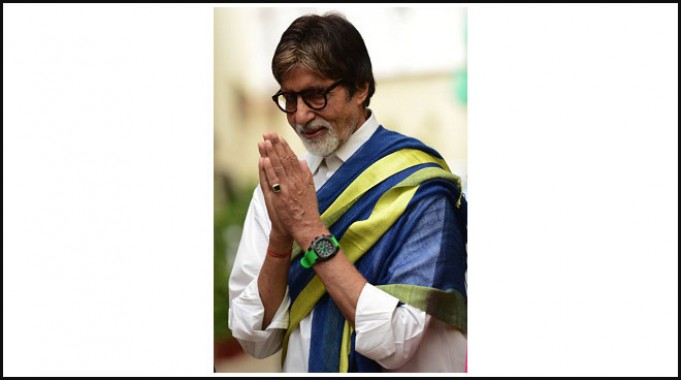Flesh out that list…
This week Forbes magazine released a list of its top 10 earners in certain fields, such as actors and radio hosts. This is part of the long-standing tradition at Forbes to name the world’s richest businessmen, the fastest-rising tech billionaires and so on. I am not sure what purpose these lists serve. It should be enough to talk about the work that disruptive companies are doing or the leadership they have. This focus on personal salaries is in poor taste, I think, but what do I know?
While the list of top earning global CEOs generally makes news back home because of the inclusion of, say, the Ambanis, this time the media here had a different reason to cheer. In the Forbes’ list of the world’s top-earning actors released on Tuesday, three Indian stars made it to the top 10. Amitabh Bachchan was the highest ranked at the 7th spot with earnings of $33.5 million. The eighth and ninth spots were taken by Salman Khan and Akshay Kumar with earnings of $33.5 million and $32.5 million respectively.
The media cheered this news as another sign of Bollywood having come into its own. Online outlets as well as newspapers drew attention to how far we have come from the days when underworld money used to finance Hindi films. Especially noteworthy, in their view, was the rising soft power of India which had translated to our actors making it to the global list. With the recent success of Telugu film Baahubali, the news was portrayed as something that reflects well on the whole of Indian filmdom, not just Bollywood.
Parse the list, though, and you find that it is meant to awe more than educate. The top three slots are taken, respectively, by Robert Downey Jr, Jackie Chan and Vin Diesel, none of whom count as A-list actors. Sure, they are stars in their own right - Downey Jr’s latest turn as Iron Man has brought him much acclaim, as has Diesel’s recurring role in the Fast & Furious franchise. As for Chan, he has been the torchbearer for martial arts in Hollywood for a long time.
But these are not actors you name-call when you talk about performance chops. They are not a Daniel Day Lewis or an Anthony Hopkins. Which is fine since the list is about the highest earners, not the best actors. But then there are serious performers too among the top 10, such as Bradley Copper who won an Oscar for his turn as a man with psychological issues in Silver Linings Playbook. He comes in at number 4, with earnings of $41.5 million.
This inability to correlate acting talent with earnings is an issue with the Indians on the list too. Neither Khan nor Kumar stand out for their acting though it can be argued that this is not strictly true for Kumar who has shown a wide variety in his choice of roles. But both of them pale before the aura of an Aamir Khan who is nowhere among the top 20 earners. Again, Mr Bachchan is both a serious actor and a consummate star, and he defies the list’s inherent logic by beating the stars to the top spot among Indians.
Go further down the list and this contradiction is repeated. The 11-20 rankings have other Hollywood names who are better placed in the popularity stakes than in acting prowess. Channing Tatum of Magic Mike XXL comes in at number 14, followed by teen heartthrob Chris Hemsworth. However, these two are right behind Johnny Depp and Leonardo Dicaprio who are both recognised as mature actors. Finally, Shah Rukh Khan clocks in at number 18 with earnings of $26 million.
To the interested reader, the list is lacking in relevant information. No comment has been presented on this dichotomy either by Forbes or the Indian media who lapped up the rankings eagerly. SRK, for example, has several business interests apart from acting and from a purely income-from-business point of view, would have earned a higher ranking. But Forbes clarifies that the rankings are based solely on earnings from acting.
Again, if the point was to represent the star’s earnings solely from films, maybe an analysis of their worth with respect to some extraneous consideration such as talent or awards would have been helpful. If the aim were, as it appears, merely to list incomes, why stop at films and not include other businesses?
There is another issue. When presenting dollar salaries on other cases too, the Indian media does not undertake the relevant contextual analysis. This happens to be true, for instance, when it reports on the salaries of top rankers at IITs and IIMs every year. The media presents the salary of someone hired to work at, say, Goldman Sachs in London as the highest earner of the batch by converting his or her pound salary into rupees and presenting the figure as crores of rupees. It fails to mention that the net usable salary for the candidate will be much less given that the cost of living in London is higher in rupee terms than in India.
Something similar ought to be done with the Forbes ranking. If accounted for PPP, it is almost certain that the Indians will go higher on the list. I am not suggesting that such a move up is useful information to anyone, for even at their lower ranks, these stars are rolling in money. But if we are going to have such a list, and it seems we will for the foreseeable future since it has come to be a Forbes staple, it might be a good idea if these numbers were put to some work.
That will entail something more for the reader to chew on than merely gawking at the big figures.







